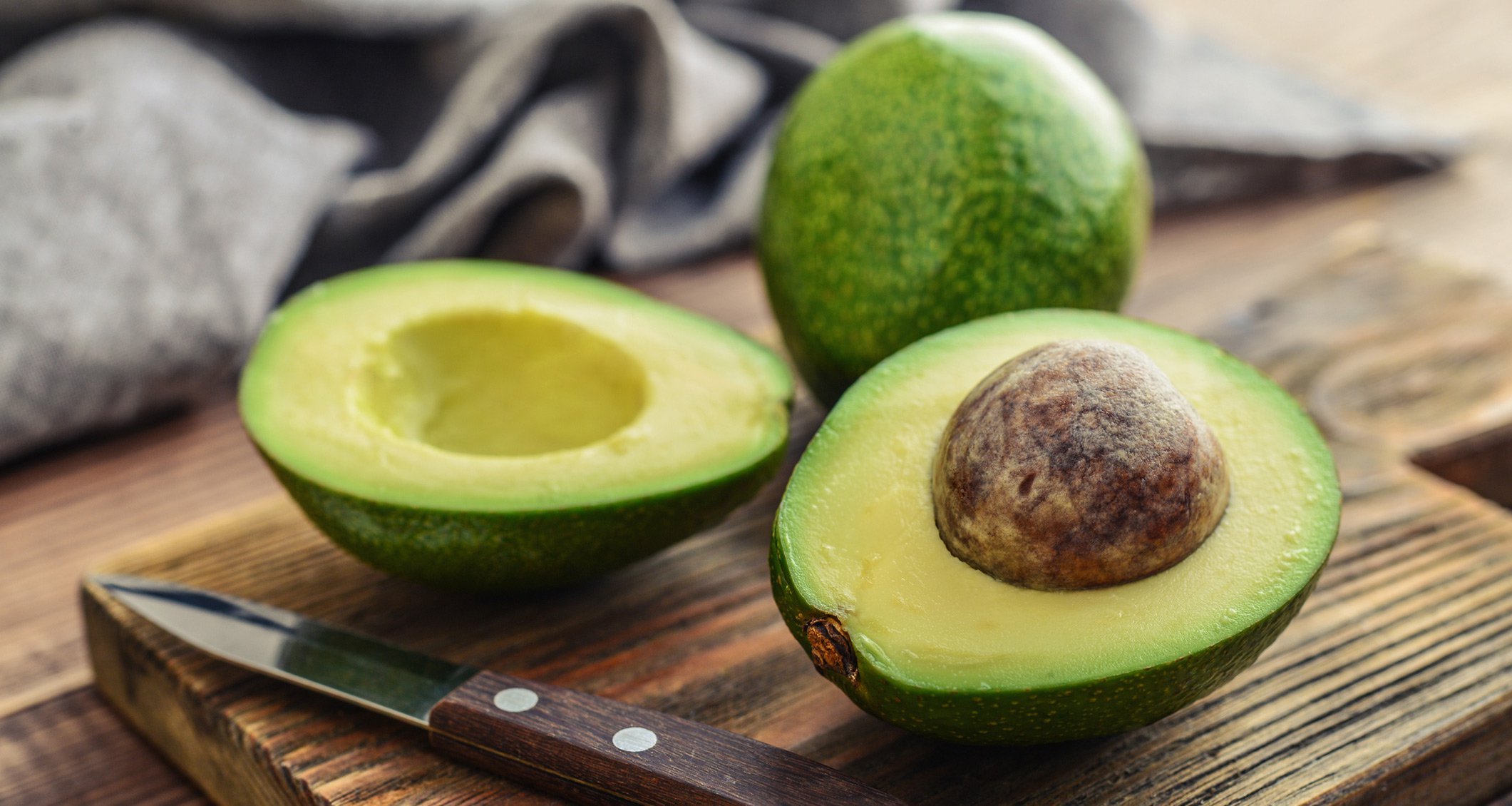You can find avocados almost everywhere these days — from grocery stores and farmers markets to growing on a tree in your backyard (if you’re lucky enough to live somewhere with a warm climate, that is!).
While avocado has been a staple in Mexican and other Latin American cuisines for centuries, it’s only recently gained popularity in other parts of the world, including North America, Western Europe, and the Mediterranean. An informal analysis of the most popular cuisines worldwide (on Instagram) found Mexican food at number five.
And as the popularity of Mexican cuisine grows, so, too, the avocado. In fact, the demand for avocados outpaces that of any other fruit.
As a result, The Washington Post dubbed avocados “America’s new favorite fruit,” projecting their status as a dietary staple for years to come.
But the collective love affair with avocados, especially in North America, goes beyond their creamy taste and association with Mexican food. People are drawn to the fruit’s healthy fats and associated health benefits, including cardiovascular health, eye health, and weight loss.
In this article, we’ll discuss types of avocados, their nutrition, and their top health benefits, along with any downsides you might want to consider.
What Is an Avocado?
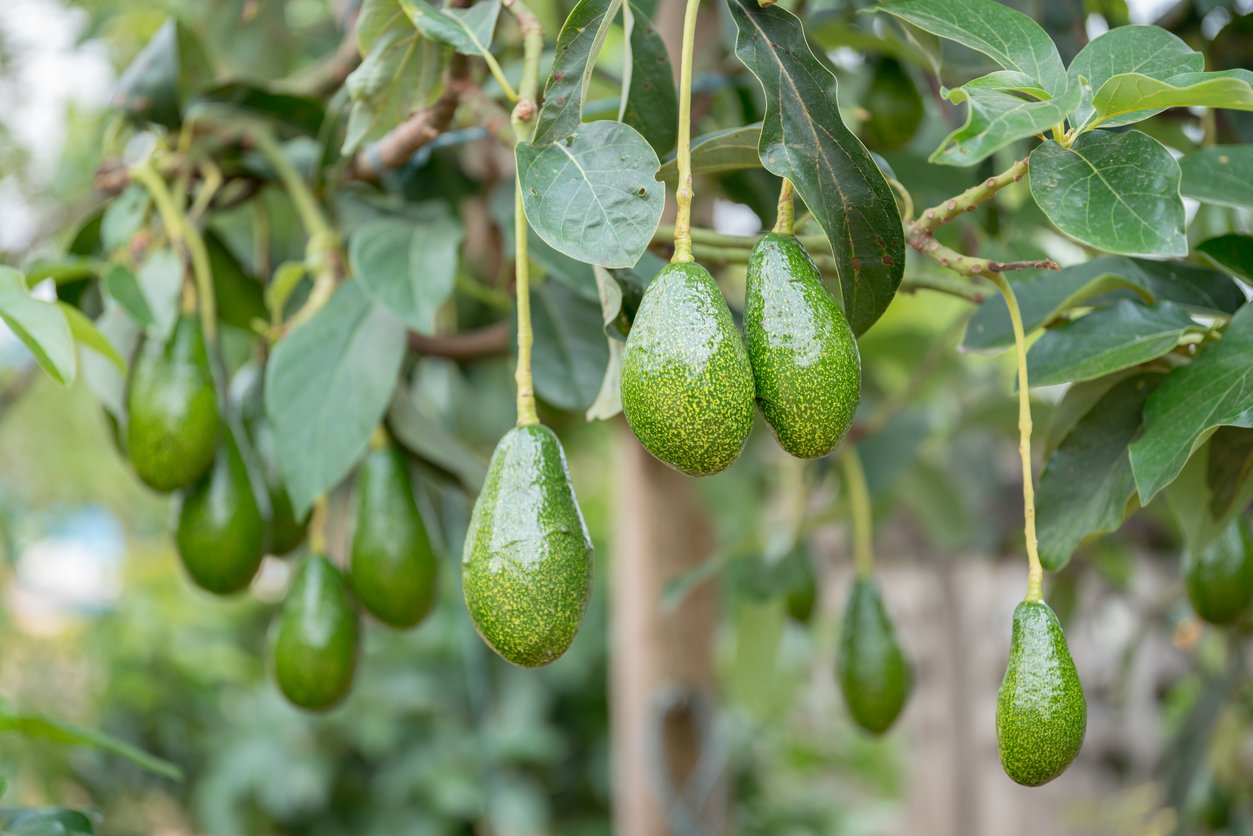
The avocado is an evergreen, tropical tree with green, pear-shaped, nutrient-dense fruit. The term avocado refers to both the tree and the fruit.
Avocado trees are members of the flowering plant family Lauraceae. There are hundreds of different varieties of avocado fruits.
The fruit itself is technically a berry containing one large seed. But keep in mind that the scientific definition of a berry (a fruit derived from the ovary of a single flower) varies from common usage. Botanists will tell you that eggplant is a berry and a strawberry is not. So I wouldn’t jump at a berry cobbler made by a botanist!
Avocados aren’t sweet. But they are a satisfying and versatile food with a creamy texture and a rich, buttery flavor from their high-fat content.
Where Are Avocados Grown?
With the increasing demand for avocados, it’s important to consider their source, as well as other issues surrounding the massive growth of avocado consumption.
The majority of avocados consumed by North Americans come from Mexico. In fact, in 2017, the country exported more than 1.7 billion pounds of Hass avocados to the US. Given the almost exponential rise of the avocado industry, particularly in Mexico, many people are concerned about its role in deforestation, water depletion, and increased greenhouse gas emissions.
In addition, according to Smithsonian Magazine, the popularity of Hass avocados is creating a monoculture. Native varieties of avocado are being cut down and replaced with Hass trees, which in turn impacts the local ecological biodiversity.
And Mexican truck drivers often face constant threats and danger from local drug cartels on their routes to the United States.
So what can you do?
You can vote with your dollars against a future Hass avocado monoculture. Consider giving another avocado variety a try. Also, buying locally grown avocados helps to minimize transportation distance and related greenhouse gas emissions.
If you’re in Florida, California, Hawaii, Australia, India, Mexico, Central America, or any other place with a warm climate, you’re likely to find a number of avocado varieties at your local farmers market or sustainable grocer.
Let’s look at some of the most common kinds of avocado fruit that you might find.
8 Types of Avocados Worth Knowing About
Avocado varieties vary widely in color (both their skin and flesh) and size. Some are green, others are black; and they range from only a few ounces to as heavy as five pounds.
The following are some of the most common types of avocados worldwide.
Hass Avocados
View this post on Instagram
Hass avocados — the small, dark green, bumpy variety you’re probably used to — are eaten more than any other type of avocado in the world. In fact, Hass avocados made up 95% of avocado sales in the US in 2022. And they accounted for about 80% of all avocados eaten worldwide.
All Hass avocado trees are descended from one tree planted in La Habra, California by Rudolph Hass — a mailman!
The Hass variety became so popular because it ripens more slowly than other kinds of avocados (believe it or not), changes color when ripe, and has a relatively thick skin that helped earn avocados the nickname “alligator pear.” Its creamy, nutty flavor also made it a favorite among the California elite.
Hass season is also conveniently year-round, which works out well because that’s exactly the same as my season for guacamole!
Choquette Avocados
View this post on Instagram
A Guatemalan and West Indian hybrid, the Choquette avocado variety is native to South Florida in the US. Choquette avocados are on the larger side and can weigh up to five pounds.
These bright green avocados are lighter in flavor and less oily than Hass. They have firmer flesh and hold up well in salads — though most people tend to prefer the buttery flavor of Hass.
Choquettes are grown in USDA hardiness zones 9a–10b, and many Floridians have shady Choquette trees growing in their backyards. They’re in season in Florida almost year-round, but ultimately, from June through March.
Bacon Avocados
View this post on Instagram
Not to worry — no pigs were harmed in the making of these tasty avos!
Bacon avocados are oval-shaped with relatively smooth green skin, pale yellow flesh, and a creamy, savory flavor. They tend to be a sweeter and more watery avocado variety than Hass.
Bacon avocados are hybrids of Mexican avocado varieties and are primarily grown in California. They are in season from November to March.
Fuerte Avocados
View this post on Instagram
Considered extremely flavorful, these pear-shaped, smooth green avocados are grown in California and Mexico. The Fuerte avocado has a thinner, easy-to-peel skin, and many consider it one of the best-tasting varieties.
Fuertes got their name from the Spanish word for “strong” after the trees survived a devastating freeze in Southern California in 1913.
Fuerte avocados are in season from November to June.
Pinkerton Avocados
View this post on Instagram
The Pinkerton avocado has a smaller seed than other varieties and is slightly more oblong. They’re also on the oilier side and are a cross between Hass and Rincon avocado varieties.
Pinkertons are valued for being a high-yield avocado tree and are mainly grown in Southern California.
Pinkerton avocados have a long season and are available from early winter through spring.
Malama Avocados
View this post on Instagram
A hybrid avocado cultivar developed by the University of Hawaii in the 1980s, Malamas are a popular Hawaiian avocado. Malama avocados have purple rather than green skin with yellow and green flesh.
Unlike some other avocado varieties that can ripen on the tree, Malamas do not ripen until picked.
You can get Malama avocados in Hawaii during the fall months — September through November.
Gwen Avocados
View this post on Instagram
Gwen avocados are dwarf trees that only grow to about 15 feet tall. Despite being a smaller type of avocado tree, the Gwen is a very productive variety. And the fruits are slightly larger and rounder than Hass.
Gwens are a type of California avocado and are in season during the summer months.
Shepard Avocados
View this post on Instagram
Native to Australia, these “green skin” (their skin stays green as they ripen) avocados are the second most common variety down under.
Shepard avocados are longer than Hass, have a nutty flavor, and are available from February to April in Australia.
Avocado Nutritional Information: The Skinny on This Fatty Fruit
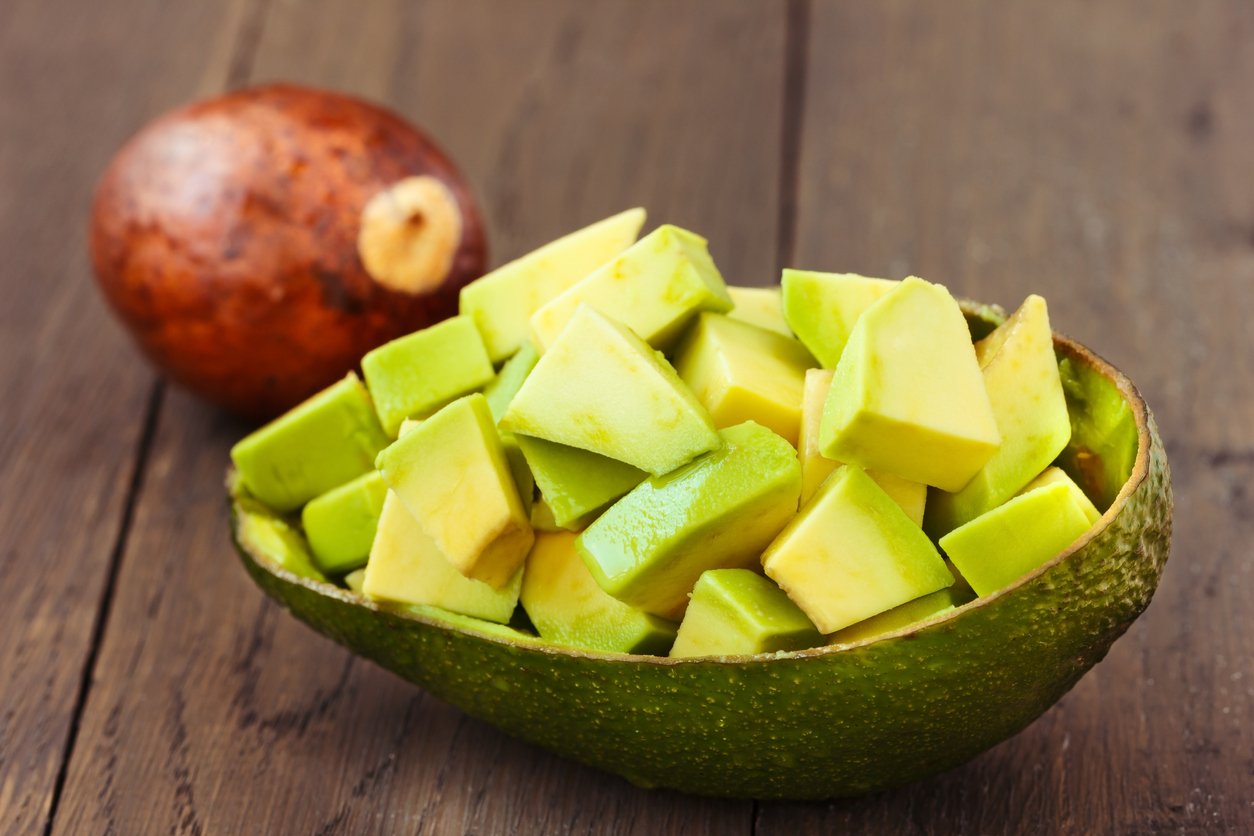
Avocado nutrition is bountiful, offering an abundance of potassium (more than a banana!), B vitamins, and vitamin C. They’re incredibly mineral-dense, with high amounts of magnesium, phosphorus, copper, and manganese.
A cup of avocado also provides 10 grams of fiber — a nutrient that many of us are significantly lacking. They’re excellent for digestive health, and a good source of prebiotics — the food that feeds good bacteria in your gut.
Avocados contain the fat-soluble vitamins — vitamin E and vitamin K — in large amounts, which is good because they also contain a lot of fat.
However, their high fat content also equals a high calorie content. Although they are incredibly nutritious, if you are trying to lose weight, you may want to eat avocados in moderation. A serving of a typical avocado is officially one-third of a fruit (50g) and delivers about 80 calories.
Fat in Avocados
One cup of avocado provides 21 grams of fat. The type of fat in avocados, therefore, matters a great deal. And luckily, it’s mostly a mixture of monounsaturated and polyunsaturated fats.
Avocados contain both omega-3s and omega-6s, which are polyunsaturated, essential fatty acids. This means they’re necessary for your body to function, and that you need to get them from food. Your body uses these fats to build cell membranes and the coverings of nerves. And they’re also needed for blood clotting and muscle movement.
Monounsaturated fats, or omega-9s, are similar to the fats found in olive oil. They’re liquid at room temperature and solid at cold temperatures.
While many people debate the health effects of specific types of fat, I think that’s a bit like debating whether a trumpet is a good instrument. Taken by itself, it’s arguable. But when it’s in a talented band, playing excellent music, the equation can change considerably.
To me, avocados are a bit like one of the finest orchestras ever assembled. They’re not only delicious — but they also contain a fabulous and nutritious symphony of components that combine to create a nourishing, satisfying, and, in my personal opinion, delicious result.
Next, let’s look at how all this nutrient density adds up to a powerful set of health benefits.
6 Avocado Benefits for Your Health
Avocado health benefits are extensive and include:
1. Avocado and Heart Disease
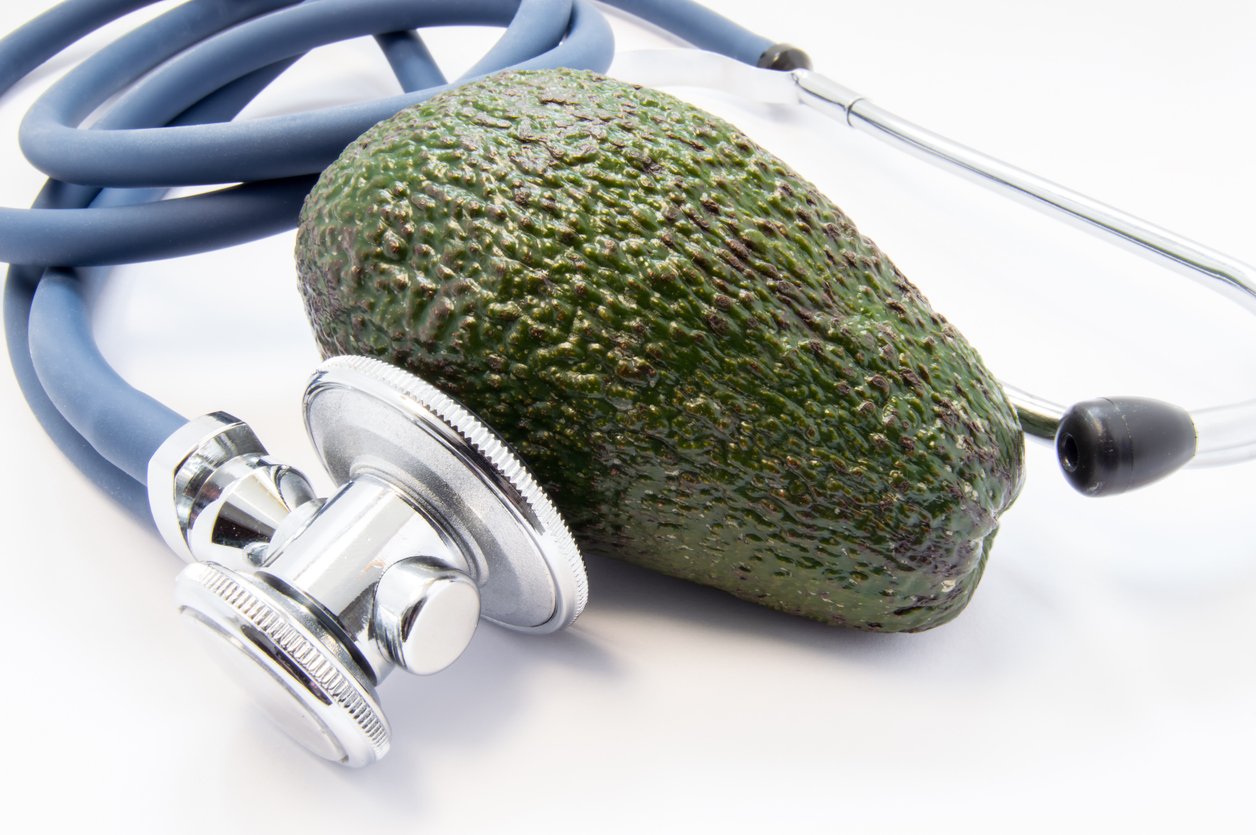
Avocados can reduce your risk of heart disease. A 2015 study published in the Journal of the American Heart Association found that eating one avocado per day as part of a moderate‐fat, cholesterol‐lowering diet reduced LDL levels. This effect is potentially due to the mono- and polyunsaturated fat content in avocados, especially when it replaces saturated fat from animal products, as well as the high fiber content of avocados.
A 2022 study in the British Journal of Nutrition also found that Mexican women eating five or more servings a week of avocado had a 17% decrease in the rate of hypertension. One possible reason for this is that we know increasing potassium intake can help lower blood pressure. And half an avocado provides a whopping 487 mg of potassium — a significant contribution to blood pressure regulation.
2. Avocado and Cancer
Avocados may help prevent and treat cancer. A 2015 study published in Cancer Research found that avocatin B, a compound derived from avocado, can help kill leukemia cells.
And a 2015 research review published in the Journal of Agricultural and Food Chemistry also found that phytochemicals (plant compounds) in avocados make them potentially beneficial for preventing cancer. Specifically, their carotenoids and vitamin E content have been looked at because of their antioxidant capabilities, helping fight free radicals that may lead to the development of cancerous cells.
3. Avocado and Weight Loss
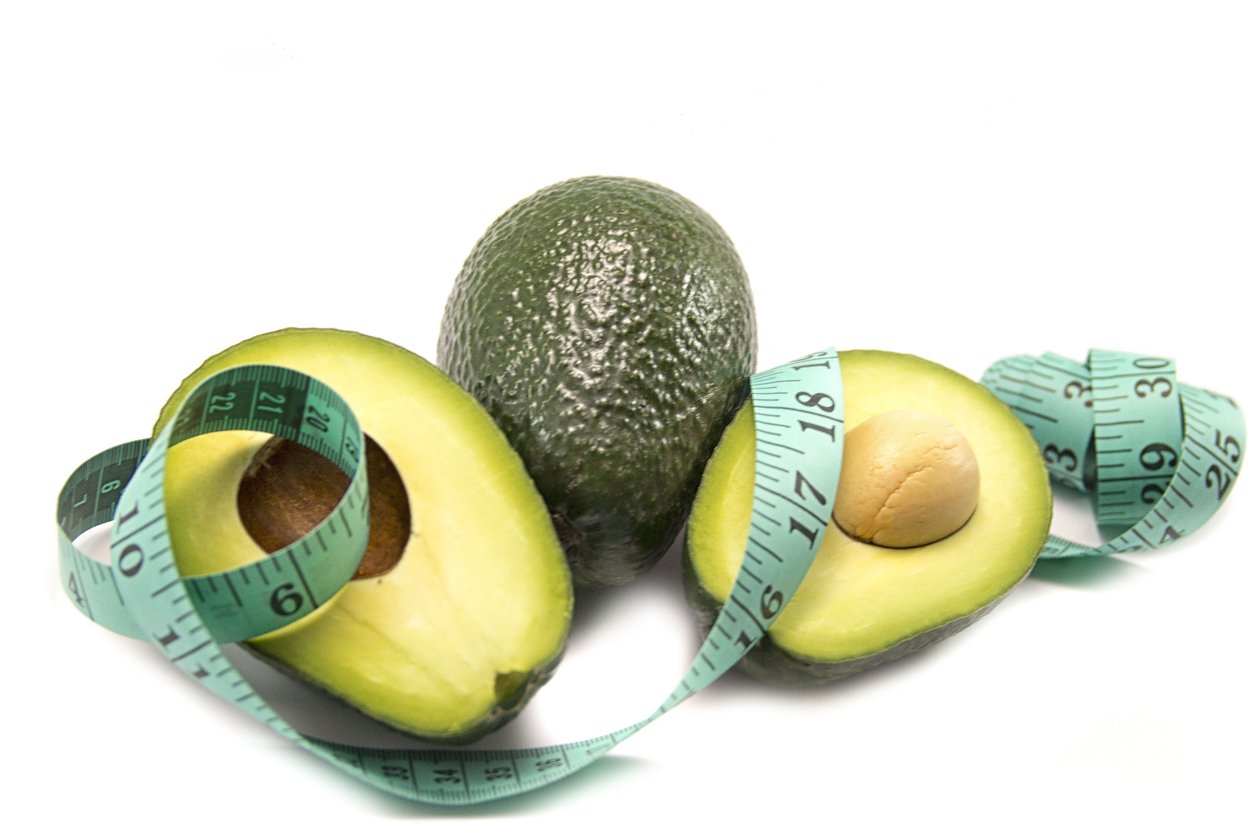
Using data from the Adventist Health Study-2, researchers discovered that despite all the calories in avocados, avocado eaters actually turned out to have a reduced risk of obesity. Avocado may influence body mass and weight loss by impacting gut hormones and energy output due to mannoheptulose, a monosaccharide (sugar molecule).
In a review of clinical trials involving avocados, results also showed a steady decline in body weight among people who consumed an avocado per day. It’s thought that avocados help reduce visceral fat, a type of fat that forms in the abdomen around the organs and can contribute to metabolic syndrome.
4. Avocado for the Brain
Avocado is rich in oleic acid, an omega-9 fatty acid that’s linked to improved cognition. One study using participants 60 and over from the National Health and Nutrition Examination Survey found that avocado eaters scored higher across the board than people who didn’t eat avocados.
Avocados may also help prevent neurodegenerative diseases, such as Alzheimer’s and Parkinson’s. A 2016 study published in Advances in Neurobiology found that the “diverse array of bioactive nutrients present in avocado” plays a key role in the prevention and cure of these types of diseases.
5. Avocado and Eye Health
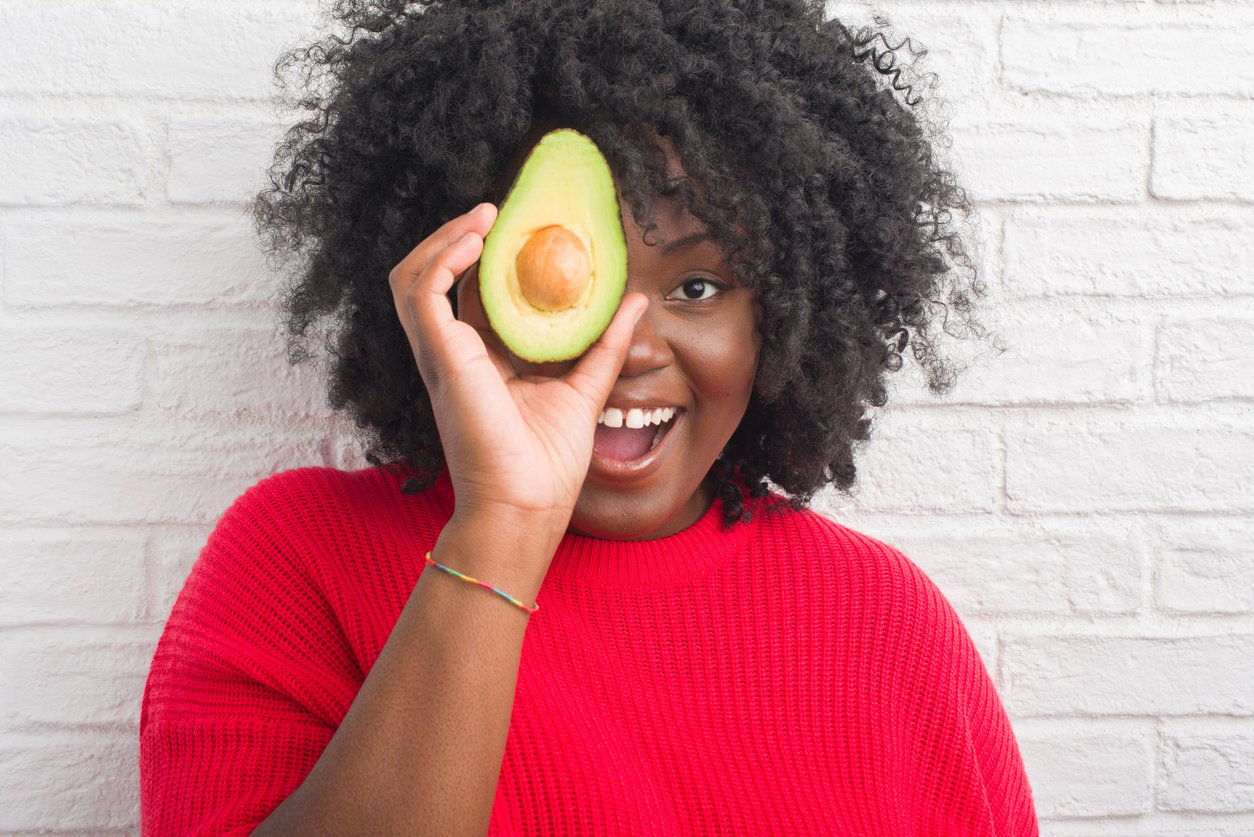
Avocados can help to keep your eyes healthy as you age. The fruit is rich in the carotenoids lutein and zeaxanthin, which can help protect and maintain healthy cells in your eyes. According to a 2017 study published in the journal Nutrients, avocado can help boost macular pigment (and visual function) with age.
Because of their high fat content and fat-soluble vitamins, avocados also help make lutein and zeaxanthin more bioavailable and increase their transport and serum levels in the eyes and brain.
6. Avocado for Pregnancy
Avocados can be great for pregnant individuals. A 2016 study published in the journal Nutrients concluded that avocados are high in folate and potassium (typically under-consumed in maternal diets) as well as fiber, monounsaturated fats, and lipid-soluble antioxidants. All of these nutrients are tied to improvements in maternal health, birth outcomes, and the quality of breast milk.
Plus, Avocados Have Few Pesticides
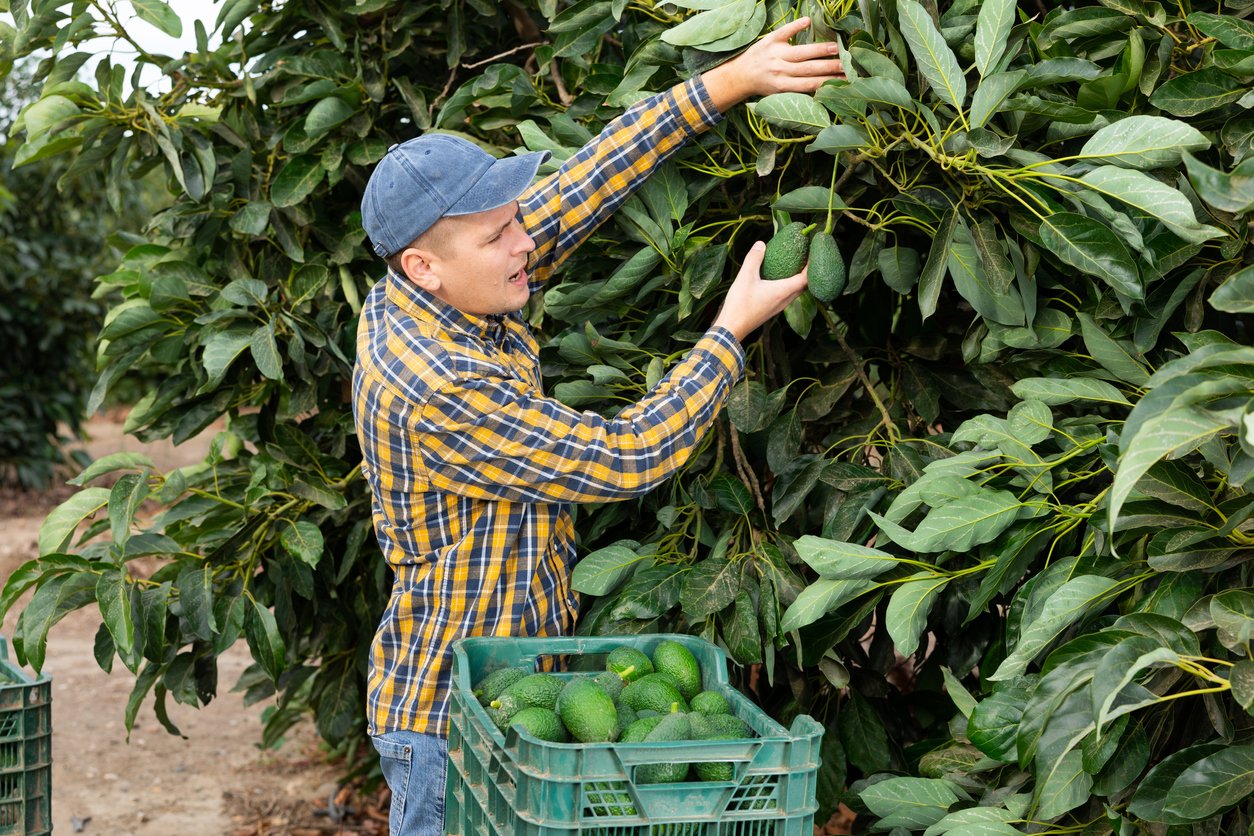
According to the Environmental Working Group (EWG), avocados are one of the Clean 15 (the list of produce likely to contain the least amount of pesticide residue).
Fewer than 2% of conventionally grown (nonorganic) avocados tested positive for pesticides.
So if you can’t afford organically grown avocados, you can choose conventionally grown varieties without any major pesticide exposure.
However, that’s not to say that avocados are not sprayed with pesticides at all. So if you want to protect farmworker health and the environment, it’s almost always better to go organic when you can.
Any Avocado Risks or Downsides?
If you’re prone to migraines or are allergic to latex, avocados might not be the fruit for you.
For those who suffer from migraines, certain foods, circumstances, or environmental factors can trigger episodes.
Avocados sometimes appear on lists of such foods due to the high levels of tyramine (a substance formed when proteins break down) they contain when overripe.
In addition, avocado contains some of the same allergens found in latex. So if you have a latex allergy, you may want to watch out to see if avocados trigger any of the same symptoms.
What About Avocado Oil?
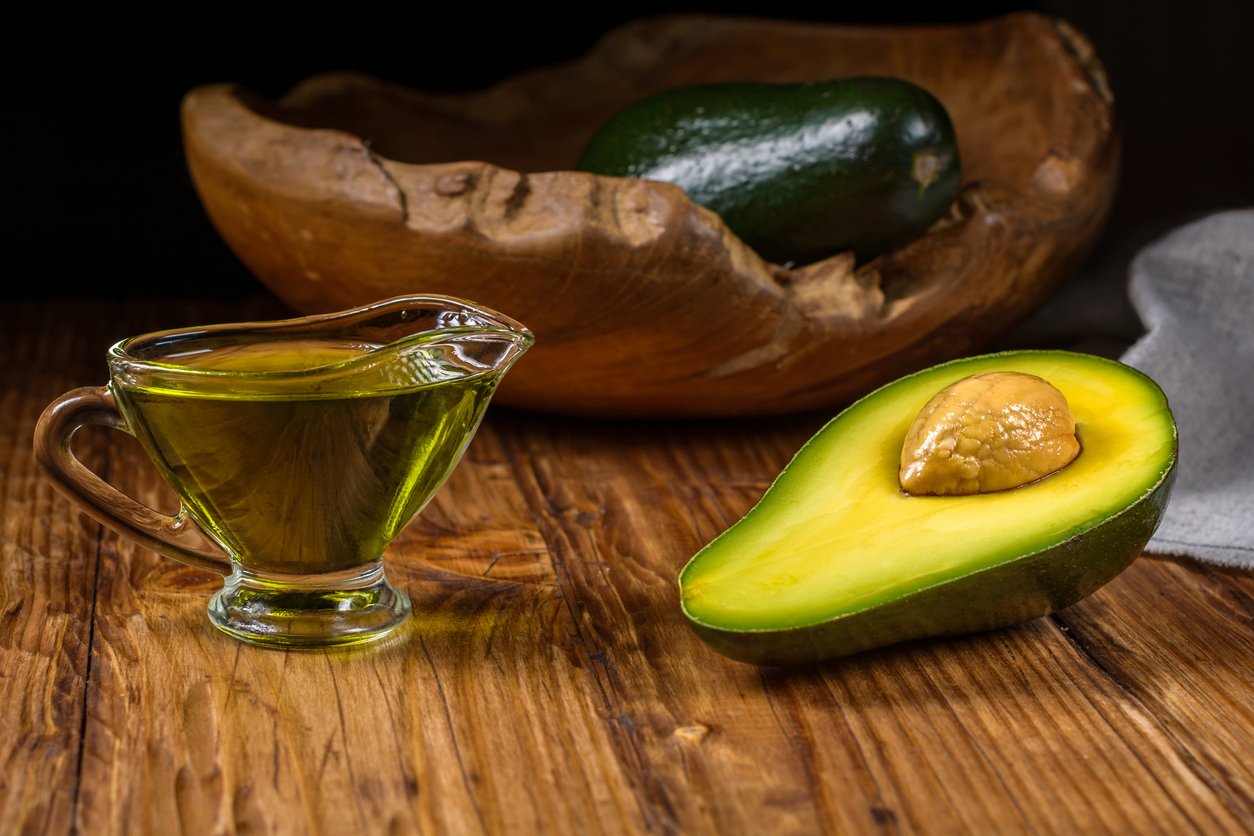
Although avocado oil isn’t exactly a health food, it, along with olive oil, is one of the healthier oil options.
If you choose to include it in your diet, it does contain lower levels of omega-6s which can be pro-inflammatory on their own or without the presence of omega-3s. Luckily, avocado oil has both, which makes it a more balanced oil choice than, say, peanut or corn oil, which only have trace amounts of omega-3s.
Avocado oil also has a very high smoke point — 520°F — which means it’s suitable for almost all types of cooking. As most cooking is done below 400°F, there’s a lower chance of burning food when using avocado oil and creating harmful compounds like acrylamide.
However, avocado oil is one type of oil that’s often subject to food fraud. So care must be taken when choosing one to ensure you’re not getting adulterated or rancid oil.
For more on the pros and cons of olive and avocado oils, as well as on the food fraud that sometimes occurs in the olive and avocado oil industries, see our article here.
Avoca-do Include Avocados in Your Diet!
The avocado is a nutritional powerhouse that can provide you with numerous health benefits. From their healthy fats, fiber, minerals, antioxidants, and fat-soluble vitamins to their ability to lower cholesterol levels and reduce the risk heart disease, neurodegenerative disease, cancer, and other chronic disease, avocados can be a great addition to almost any diet.
While avocados are high in fat and calories, their overall nutritional value makes them a valuable addition to a balanced diet. Incorporating avocados into your diet can be a simple and delicious way to support your overall health and well-being.
Tell us in the comments:
- Are you an avo lover? What avocado health benefits do you appreciate?
- What are your favorite ways to eat avocados?
- Have you ever enjoyed other avocado varieties, other than Hass?
Featured Image: iStock.com/tashka2000
